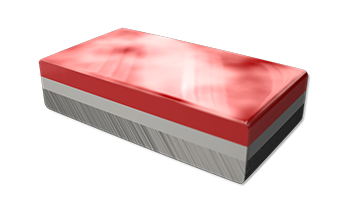Blooming

Description
A milky white haze or mist formed on the surface of the paint film.
Cause
Moisture condensing on, and being trapped in the wet film. This may be due to:
- Spraying during cold, wet or humid weather.
- Use of too fast or poor quality thinner.
- Compressed air pressure too high, and/or poor spray gun set up.
- Fanning compressed air onto the film to speed up solvent release.
- Draughty paint shop, or inadequate heating and/or air movement.
Prevention
- If possible, avoid spraying air drying paint during raining or exceptionally cold or humid weather. If this is unavoidable, a non-bloom thinner should be used.
- Use correct grade of thinner.
- Reduce compressed air pressure to minimise the cooling effect.
- Allow solvent release to take place naturally.
- Ensure that the paint shop is adequately heated, properly ventilated and free from draughts.
Rectification
Slight blooming may be removed by the use of polishing compound, after the paint film has hardened, or by spraying the affected area with non-bloom thinners. In more severe cases, rub down the surface, and repaint using the correct grade or thinner or non-bloom thinner. If these remedies fail to correct the fault, raise the temperature of the paint shop by a minimum of five degrees, avoid all direct draughts, flat and repaint the affected area.
NOTE: Blooming of the colour coat may indicate that the undercoats have been similarly affected, the defect having gone unnoticed due to their matt finish. This may subsequently give rise to blistering or loss of intercoat adhesion

Other Defects:
